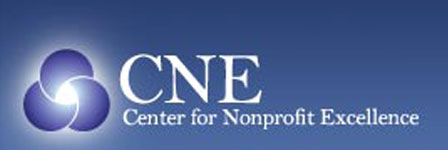The most common issue these babies may have is gastresophageal reflux/foregut dysmotility – it is reported to occur in 45% to 90% of infants with CDH. Reflux can be treated with medications, and many parents also use some sort of angle bed – raised head after and during the feeds. As these babies grow, they can outgrow reflux. But, if it becomes severe, a surgical procedure called fundolopation may be necessary. This is being done less today than ten years ago due to the advancement of medications.
A high percentage of these children are underweight – in one clinical study over 50% of CDH infants weighed below the 25th percentile. The most important thing for these babies is to have the nutrition they need for growth – they may need NG Tubes or Gtubes for feeding. Please do not take this personally; we all want oral feeding to happen, but you must remember that it is most important that they grow and thrive as much as possible. Eating could be a challenge. Fighting your infant to take a bottle or nurse to the point that it compromises their growth is not worth the stress. It is more important for your love and cuddling to be felt than for them to feed orally from their parent. If your child is a great oral feeder, that is wonderful. Growth helps these babies and their lungs. Always remember that reflux could cause your child to refuse to eat, too. At high school graduation, no one speaks of how much or how their child ate as an infant or a toddler.
Upper gastrointestinal study, pH probe and/or gastric scintiscan should be considered for all CDH Infants before discharge and at 1-3 months after birth if symptoms, 4-6 months after birth if symptoms, at 9-12 months after birth to be considered for all patients, 15-18 months if symptoms, and annually through age 16 if symptoms.
Esophagoscopy should be considered if there are symptoms at 1-3 months after birth, 4-6 months after birth, at 9-12 months after birth if symptoms or if there are abnormal gastrointestinal evaluations, at 15-18 months after birth, and annually through 16 years if symptoms.
Oral Feeding Evaluations should occur before discharge, 1-3 months after birth, 4-6 months after birth, 9-12 months after birth, 15-18 months after birth, and annually until age five.
Hearing Loss can be a concern and should be evaluated in these infants who survive CDH. It can occur even if they were not treated with ECMO. The cause remains for the most part unknown. It could be several factors including the treatment for respiratory failure and/or combination of medications they may have taken. Almost half of these infants may have some degree of hearing loss. They should be evaluated before discharge and every six months to age three, then annually to age five. Early discovery of any hearing loss will allow early intervention which will help their development.
Developmental Screening Evaluations should occur before discharge, then 1-3 months after birth, 4-6 after birth, 9-12 months after birth, 15-18 months after birth, and then annually to age 5 depending upon their assessments.
Pulmonary function testing should be at 4-6 months after birth if indicated, 15-18 months after birth if indicated, and annually through age 16.
RSV prophylaxis immunizations should be done prior to discharge throughout RSV season during the first 2 years after birth (if evidence of chronic lung disease).
During cold, flu and RSV season, many parents isolate their CDH babies and young children from the general public as well as anyone who may have a virus, cold, or bacterial infection. Hand sanitizer will become a staple in your household. Others may be critical of you as a parent because you will appear to be overly cautious about your child’s exposure to any cold symptom. But, parents of these children will tell you it is better to be overly cautious and appear rude to some than to rush your child to the hospital ER in respiratory distress. A simple cold in CDH babies and young children may develop into pneumonia. Their lungs are already fragile. For a baby without CDH, pneumonia is serious, but for a CDH baby, it can be deadly.Scoliosis and chest wall deformity screening (physical exam, chest radiograph, and/or computed tomography of the chest) should be in follow-up care at 9-12 months after birth (or sooner if you notice something abnormal) and annually to age 16. When the diaphragm forms in development, so does the spine. It is believed that scoliosis may occur in approximately 17-27% of CDH survivors. It is important to follow up with their care and early intervention is best.
Most parents of CDH infants and children fear reherniation, and it has been reported in 8% to 50% of patients with CDH. One predictor is a large defect that requires a patch to repair. If your infant or young child has increased reflux activity, decreased feeding, increased gagging, or you hear crackling noise in their chest as they breathe – take them to the doctor. These are just a few symptoms that have been reported prior to diagnosis of recurrent diaphragmatic hernias. Monitor and record any changes to relay to the doctor(s). If you truly feel something is not right, insist upon x-rays for your peace of mind. Occasionally there are children who have no symptoms who will require surgery for a recurrent diaphragmatic hernia. The lifetime risk of recurrence is not known. There are many children who have never had an incident, but it best to be overly prepared with information.
Bowel obstructions or adhesions are also something that happen in these children and usually are rapidly symptomatic. The explanation of this is that their intestines are usually herniated. When the initial repair is done, they are pushed back to the lower thorax. In this process and through growth, sometimes problems occur. Be aware of any intense pain your child might have in their stomach area. If accompanied with fever, no bowel movement, or blood in the stool, immediately get them medical attention.
Pectus excavatum – sunken appearance of the sternum can be prevalent in CDH children. Most of the time it is more cosmetic but in some cases the heart is displaced. The Mital valve prolapse could be present and there is a decrease in lung capacity. Surgery might be recommended.
Psychological Issues Parents have reported that many of their children have sensory issues. They may not like their hands or feet being held – for fear that an IV will be coming next. They associate someone holding their hand or foot with pain to come soon. They may have issues with certain fabrics or textures and touching them. Some have reported to have mild to very severe oral aversions. Sometimes it is anything in their mouths, and sometimes it is just certain textures. There are many therapists now that specialize in children who have had medical issues and the stress they feel after.
If your child has had multiple surgeries and procedures, this could be a huge issue. Age has a whole lot to do with their reactions, but there are things you can do to help your child. One mother trached a Teddy Bear for her son and gave him a toy medical kit to help him. You can also request that any IVs or surgical procedures be done in another room, not their hospital room if they are older. This way they can feel “safe” in their hospital room. Never feel that you should be quiet or that you don’t know your child. If you feel you should say something – SAY IT. You know your child better than anyone. Remind health professionals that yes, your child is their patient but your child is your baby – always. There is a connection between parents and children that the best health care professionals know could help them in the care for their patient.There are also parents who obtain copies of their child’s medical records. We would recommend not only to have the hard (paper) copies but to also save them on a CD. There are some parents who even provide copies of these CDs to any new doctors that might come into their child’s life. It saves time and also a parent giving the entire history. Not all hospitals are on-line with one another nor or all doctor’s offices and until they are parents must be the source. This is one idea which could make life easier.
Therapies All children who spend any amount of time in the NICU should also be evaluated prior to discharge and shortlysee if they qualify to receive or may need any sort of physical thereapy. Do not be disappointed if your child needs some sort of follow-up and therapy, by getting these services for them early, many times it improves their lives, yours too and avoids or prevents serious issues in the future.
A Humorous but Very Real Warning - CDH survivors are the most defiant, determined and embody the strongest wills as individuals. As parents, you may be at your wits ends during the terrible twos, troublesome threes, and beyond. Enjoy it, that is what gets these children through life!
Breath of Hope, Inc. ©
A Humorous but Very Real Warning - CDH survivors are the most defiant, determined and embody the strongest wills as individuals. As parents, you may be at your wits ends during the terrible twos, troublesome threes, and beyond. Enjoy it, that is what gets these children through life!






